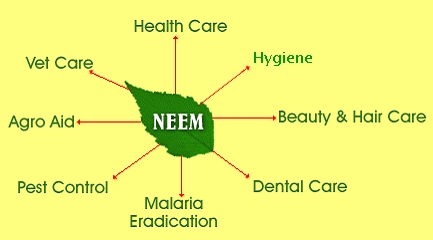Bioprospecting
The exploration or screening of natural biodiversity or agricultural biodiversity in order to identify
potential commercial applications from those genetic resources.
Case Study: Neem

- Patent was granted to an American company, W.R. Grace & Co, for a neem-based insecticide. The patent concerns extraction of stable compounds that deter insects from eating plants.
- 'Novelty' immediately questioned.
- A hearing at the European Patent Office in 2000 established that the European patent (EP0436257) was invalid, because the use of hydrophobic elements in neem, for pest control, was already known in India. The patent was revoked. However, the patent issued by the United States Patent Office in 1992 remains valid.
- ...was not an attempt to patent the tree itself, but was clearly regarded by the European Patent Office as an attempt to patent indigenous knowledge (TK). However, the case is one of a number that raise wider ethical and legal questions about patenting uses of plants that originate in other countries, or which have traditional uses which have not been written down.
- Spurred the Indian government and other countries to take a much more proactive approach to recording TK.
- India itself, numerous patents have been granted on specific aspects relating to use of neem.